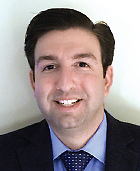Mental illness and addiction can be devastating and cause both our patients and their families to lose hope. When this happens, we are often not immune to the negative effects of our patients’ suffering. If our patients stumble, lose ground, and lose hope, it can be hard for us not to lose hope as well. This is why learning to maintain and nurture hope is important for our mental health as well as that of our patients.
Our training teaches us the skills needed to be superior diagnosticians. However, Garrett O’Conner, M.D., an associate clinical professor of psychiatry at the University of California, Los Angeles, and former chief psychiatrist at the Betty Ford Center, has presented research that points out that the word choice of Kaplan and Sadock’s Comprehensive Textbook of Psychiatry is surprisingly negative.
Out of the more than 45,000 lines, he notes that more than 2,000 use negative words such as anxiety, depression, fear, shame, hatred, and guilt. In comparison, hope, joy, compassion, forgiveness, gratitude, love, and faith are given a total of seven lines.
Accordingly, we are trained to look for deficits in mood, problems with sleep, impairments in activities of daily living, and the neurovegetative symptoms of psychiatric illness. Dr. O’Conner points out that our diagnostic criteria—and our training, unfortunately—do not focus enough on the positive aspects of the human condition. If we focus all of our time and efforts on the negative effects of psychiatric illness and addiction, which Dr. O’Conner calls “malignant shame,” are we not neglecting to heighten the positive aspects of life with our patients?
Take a moment to reflect on how much time you spend discussing and building your patients’ hope.
One of the key tenets of Viktor Frankl, M.D.’s, logotherapy, as described in the bestselling book Man’s Search for Meaning, is the importance of finding meaning and purpose in even the most dire of situations. A psychiatrist and a survivor of the Holocaust, Dr. Frankl observed that those who maintained their hope were often the ones who survived the prison camp in which he was interned. Dr. Frankl maintained his hope, as did others he observed, by finding purpose and meaning in day-to-day life. He focused on surviving the torturous conditions to publish and share his new theory. Even on his worst days, maintaining his hope helped him to persevere.
Dr. O’Conner noted the overlapping and important role that hope plays in both the rehabilitation of those suffering from addiction and those who have survived trauma like the Holocaust. For example, by using logotherapy, encouraging spirituality, or encouraging the establishment of social/human connections, practitioners can help patients with addiction or victims of trauma find purpose and meaning in their lives. Finding meaning, purpose, and goals redirects the focus to a future orientation and increases resilience and hope. Life’s challenges, including relapse of psychiatric illness or addiction, can be trying if we focus only on the past, the present, or both. If we neglect to focus on the future, it is easy to become discouraged. This is true for those suffering from other mental illnesses, such as depression and anxiety.
Dr. O’Conner and Dr. Frankl remind us that hope is a critical part of the human experience and necessary for high quality of life. Working with patients to achieve their goals, in addition to decreasing their symptomatology, can provide motivation and hope for practitioners as well. This is where I encourage you to focus when there are setbacks, because we must always have hope if we expect our patients to have hope as well. ■

